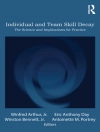The author does a commendable job of taking what is known about groups, the unconscious, and psychodynamics in an academic sense, and grounding it in relevant experiential education examples. This book is appropriate for intermediate and advanced practitioners who want to stretch their own thinking about group processes and group management. Ringer’s text provides a good bridge between academic journals (and contains an abundance of quality citations) and practical application related to group leadership. I [found] it engaging and thought provoking.’
– Journal of Experiential Education
‘Martin Ringer offers explanations of group processes with examples (both extensive and quite brief) that illustrate both concepts and strategies. Also a rare phenomenon, he positively encourages readers to relax their concentration on the written word and to think, make associations and learn by reflection on their own experiences of being leaders and members of groups.’
– Leadership & Organization Development Journal
‘It gives huge assistance to a thinking group-worker. [It] brings alternative viewpoints and slants of lighting that open up familiar territory in fresh and stimulating ways. Worth the read.’
– ANZPA 2002
‘The book’s audience is not limited to those in training. Experienced group leaders will have their memories refreshed by his reviews of experimental learning and psychoanalytic and semi-systemic ways of understanding human and group behaviour practitionners in both the fields of adventure and group psychology will recognise that there is a maturity in Ringer’s writing. He speaks from a profound understanding that comes from the practical lived level.’
– Journal of Adventure Education and Outdoor Living
‘In publishing this book, Martin Ringer has provided us with a companion for quiet reflection. It will support group leaders in developing insights into their own practice and in raising their conscious awareness. It is a counterpoint to the many texts that focus on recipes and heuristics for success. In contrast to these superficial quick fixes, the author offers a book that brings the reader to profound reflection…The book is invaluable as a companion to signpost directions for further inquiry and experience. It can act to stretch one’s appreciation and understanding of group complexity… It is a book that rewards patient contemplation and delivers high returns for depth of study. As I journey through the troubled and pleasant waters of group life, Martin Ringer’s book will be a companion to accompany my thinking and actions.’
– Steve Kempster, MBA Programme Director, Lancaster University School of Management
Groups provide a powerful medium for therapeutic work, and are the building blocks of all institutions – whether in the education, health, government, or private sectors. Martin Ringer, an internationally known consultant and writer on group psychology, here outlines techniques for understanding groups that will be relevant to those who lead teams in any setting. The result is an accessible guide both to leading a group, and to understanding the necessary dynamics that will result in the best team-work. Throughout, Martin Ringer uses his wide-ranging experience and an informal style to make his points as accessible as possible to all readers – whether or not they have a formal background in group psychology.
Rich with new ideas and challenging perspectives, this book is strongly recommended for anyone who wants to improve their ability as a group leader. The author provides basic and fundamental reference points for leaders, whilst also encouraging them to adopt more experimental approaches.
Mục lục
Foreword (Claudio Neri). Preface (Malcolm Pines). Author’s preface. Introduction. Prelude. PART ONE 1. Constructing reality in groups. 2. Internal working models. 3. Conscious, preconscious and unconscious. 4. Aspects of the unconscious, preconscious, and conscious that influence behaviour in groups. 5. Unconscious processes: language and symbolism. 6. Projection and other phenomena of the unconscious. 7. Patterns in the group as a whole. PART TWO: Introduction to Part 2: application of principles. 8. A psychodynamic view of experiential learning in groups. 9. Linking, containment, and affiliative attachment. 10. Enhancing group effectiveness through creating and maintaining a ‘reflective space’. 11. Six perspectives on group leadership competencies. 12. Leaders as artists: unconscious processes in groups. References. Index
Giới thiệu về tác giả
T. Martin Ringer has spent the last ten years as a management consultant living in Australia and more recently in New Zealand. He provides workshops for managers, group leaders, and consultants in many parts of the world, and teaches group work at St Martin’s College in the UK. He has recently been appointed as Head of Programmes (Social Sciences) at Waiariki Institute of Technology (Whare Takiura) in Rotorua, New Zealand. Martin has extensive experience in working with groups in educational institutions, corporations and adventure therapy programs. He has published extensively in the areas of group work, experiential learning and organizational culture.












